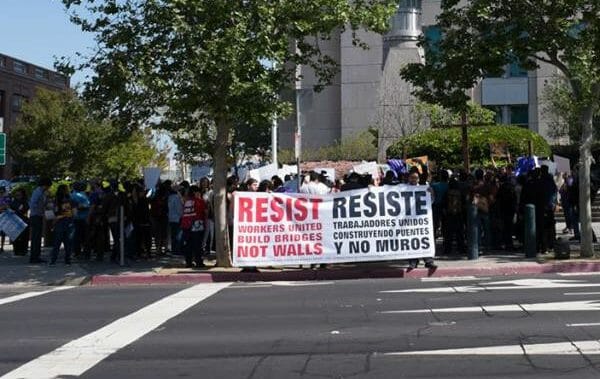Why is Terms of serviceAlbert Einstein in Oppenheimer?
Christopher Nolan's highly anticipated historical epicabout J. Robert Oppenheimer (played by Cillian Murphy), first teased the famous scientist's appearance in the film's earlier trailers. Einstein (played by Tom Conti) appears throughout Oppenheimer, and while the few scenes might add up to a sliver of the film's three hours, they're incredibly profound in terms of the film's bigger picture.
SEE ALSO: 'Oppenheimer' review: Ambitious, deeply Nolan, deeply flawedIn these scenes, Einstein acts as a sort of mentor or confidant to Oppenheimer. Understanding how their relationship came to be, as well as the role Einstein's theory of special relativity in physics played in the development of the atomic bomb, will help viewers better understand both Oppenheimer himself and Nolan's film.
You May Also Like
But considering Einstein's limited appearance in the film, it might be difficult to grasp the who, what, where of how the two initially met, and why Einstein was such an integral player in Oppenheimer's development of the atomic bomb.
It's time for a quick history lesson about Einstein's misunderstood involvement with the atomic bomb, his relationship with Oppenheimer, and why it was so important for Nolan to include him in the film.
Was Albert Einstein involved in making the atomic bomb?
 Credit: Melinda Sue Gordon/Universal Pictures
Credit: Melinda Sue Gordon/Universal Pictures To this day, Albert Einstein has incorrectly been linked to creating the atomic bomb. In 1905, Einstein developedquite possibly the most famous equation ever: E = mc^2. Einstein's equation, which states that energy is equal to mass times the speed of light (squared), helps explain the energy that is releasedby an atomic bomb — but not how to buildan atomic bomb.
Einstein himself stated, "I do not consider myself the father of the release of atomic energy." When it comes to the actual blueprint for and building of the atomic bomb, Einstein wasn't tangibly involved at all. In fact, in 1940, Einstein was denied the security clearance he'd need to work on the Manhattan Project by the U.S. Army Intelligence office, which cited his leftist politics as the reason; none of the scientists involved were even allowed to consult with him. But there is another little piece of history that's also tied Einstein to the atomic bomb.
As mentioned in the film, in 1938 a small team of German scientists managed to split a uranium atom. This split, known as fission, sees an atom's nucleus splitting into two or more nuclei which releases an incredible, explosive amount of energy. Worried that the Germans would be using this finding to build a colossal bomb, Einstein signed a letter (written by physicist Leo Szilard) to the U.S. President Franklin D. Roosevelt in 1939. The letter warned the President of Germany's potential nuclear efforts and urged him to start a nuclear program in the US. Three years later, in 1942, the Manhattan Project officially launched.
In 1964, The New York Timesdescribed this as the "letter that started it all,"speaking to a popular attitude that cited Einstein's signature as a catalyst for building the atomic bomb in America. But the famed scientist was still never directlyinvolved with making the actual bomb and had often expressed his profound concerns over its use. After WWII, Einstein famously voiced his regrets on signing the letter, saying: "Had I known that the Germans would not succeed in developing an atomic bomb, I would have done nothing."
How did Einstein and Oppenheimer know each other?
 Albert Einstein (center) celebrates his 70th birthday at the Institute for Advanced Study with J. Robert Oppenheimer (second on the right). Credit: THA/Shutterstock
Albert Einstein (center) celebrates his 70th birthday at the Institute for Advanced Study with J. Robert Oppenheimer (second on the right). Credit: THA/Shutterstock Like the film, Einstein and Oppenheimer were in fact colleagues and friends in real life. The pair first met in 1932 during Einstein's visit to CalTech. In Kai Bird and Martin J. Sherwin's American Prometheus: The Triumph and Tragedy of J. Robert Oppenheimer, the book on which the film is based, it's noted by Oppenheimer's father, Julius, that the pair often had fleeting conversations together in CalTech. It's also noted that their lives regularly intertwined with the duo having many conversations on politics and science.
Related Stories
- 'Oppenheimer' review: Ambitious, deeply Nolan, deeply flawed
- Barbenheimer isn't just a meme, it's a call to action
- Barbenheimer or Oppie: What's the best double-feature viewing order?
- The 'Oppenheimer’ cast on shooting the film's most remarkable moments
- Top 10 streaming services offering free trials in 2023
In 1947, they officially became colleagues at the Institute for Advanced Study,where they worked side by side until Einstein's death in 1955. Despite occasionally having opposing views, Oppenheimer and Einstein were pretty much friends. Ten years after Einstein's death, Oppenheimer gave a lecture at the UNESCO House in Pariswhere he reflected on his relationship with Einstein saying: "Though I knew Einstein for two or three decades, it was only in the last decade of his life that we were close colleagues and something of friends."
The lecture also saw Oppenheimer giving his opinion on Einstein's involvement with the atomic bomb, declaring, "Einstein is often blamed or praised or credited with these miserable bombs. It is not in my opinion true." Oppenheimer's lecture titled "On Albert Einstein,"was published in The New York Review of Booksin 1966.
Suffice to say, Einstein and Oppenheimer had an integral relationship that surpassed science and their roles within it. As explored in the film, the pair found familiarity in their mutual adoration of scientific revolution and their struggles with the drastic, world-changing weight of their contributions. In a way, Einstein acts a mirror to Oppenheimer throughout the film — a veteran scientist who's borne the brunt of his mistakes, passing on whatever torches of wisdom he can to Prometheus himself.
How to watch:Oppenheimeris now playing in theaters.
Topics Film





